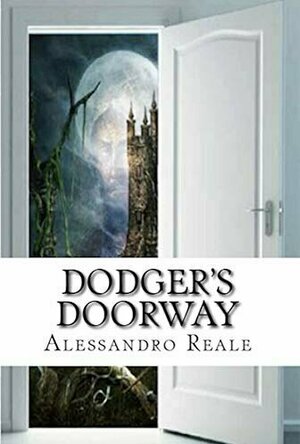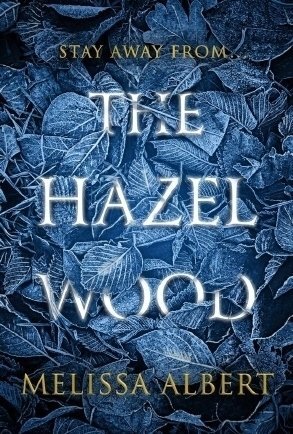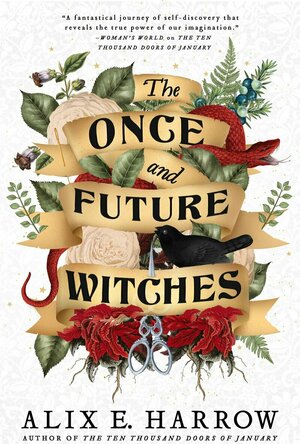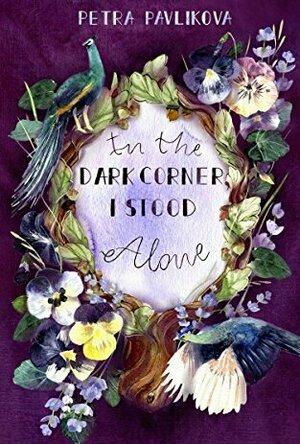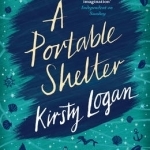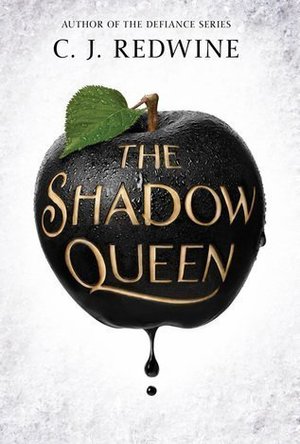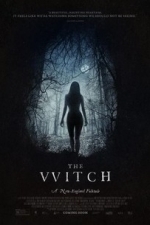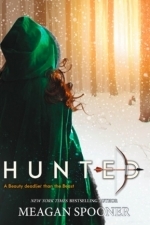Search
EmersonRose (320 KP) rated Dodger's Doorrway in Books
Nov 20, 2019
Dodger’s Doorway, by Alessandro Reale, is a fantasy adventure story that explores retelling classic fairy tales and fables in unique and fun ways. The book follows main character Mark ‘Dodger’ Bishop, a teenager from our world who is tired of his life. While struggling with divorcing parents, and school bullies, and getting through his senior year of high school, Dodger finds a doorway to another world. This world is inhabited by the fairytale characters of our childhoods. Dodger meets Humpty Dumpty and Rumpelstiltskin and many more classic characters. Dodger is taken on an exciting journey which has its dangers and challenges. Along the way, Dodger must work to not only save Storyworld but work through his own fears and struggles.
Dodger’s Doorway is a fantastical adventure that makes for a super fun read. The melded fairytale worlds is a theme we have seen more and more of, which I love, and I think that Reale did a masterful job of combining the magical nostalgia of the characters we know and love as well as bringing in a unique twist and creating new life in this classic characters. I particularly liked the portrayal of Humpty Dumpty. I think that Humpty is a character that is often veered away from as being too hard or not interesting enough to expand upon, but Reale takes him and makes him into an exciting warrior, which I thought was very clever. Reale’s Storyworld combines the magical innocence and dark origins of the stories and characters he chooses which gives the story a real sense of danger and epic adventure that makes the book a quick and thrilling read. Reale took inspirational from a wide range of stories; from Hansel and Gretel, Jack and the Beanstalk, Pinocchio, Peter Pan, Alice in Wonderland, The Wizard of Oz, and many more. I loved the variety and enjoyed seeing Reale’s spin on the characters.
The book itself is well-written, and the arc works well to make for a book that is hard to put down. Dodger is a great character in that he has a lot of growth throughout the book and creates real feeling relationships with the fairytale characters he meets. I liked that Reale brought the book to a young adult read instead of a children’s book by playing with the dark sides of fairytales, as well as making Dodger a teenager dealing with very real young adult issues.
Dodger’s Doorway is an enchanting story with a lot of heart. I very much enjoyed reading it. If you are a fan of fantasy stories, particularly tales where characters find magical worlds, a personal childhood dream of mine and many others I am sure, then I would highly recommend giving this book a read!
Dodger’s Doorway is a fantastical adventure that makes for a super fun read. The melded fairytale worlds is a theme we have seen more and more of, which I love, and I think that Reale did a masterful job of combining the magical nostalgia of the characters we know and love as well as bringing in a unique twist and creating new life in this classic characters. I particularly liked the portrayal of Humpty Dumpty. I think that Humpty is a character that is often veered away from as being too hard or not interesting enough to expand upon, but Reale takes him and makes him into an exciting warrior, which I thought was very clever. Reale’s Storyworld combines the magical innocence and dark origins of the stories and characters he chooses which gives the story a real sense of danger and epic adventure that makes the book a quick and thrilling read. Reale took inspirational from a wide range of stories; from Hansel and Gretel, Jack and the Beanstalk, Pinocchio, Peter Pan, Alice in Wonderland, The Wizard of Oz, and many more. I loved the variety and enjoyed seeing Reale’s spin on the characters.
The book itself is well-written, and the arc works well to make for a book that is hard to put down. Dodger is a great character in that he has a lot of growth throughout the book and creates real feeling relationships with the fairytale characters he meets. I liked that Reale brought the book to a young adult read instead of a children’s book by playing with the dark sides of fairytales, as well as making Dodger a teenager dealing with very real young adult issues.
Dodger’s Doorway is an enchanting story with a lot of heart. I very much enjoyed reading it. If you are a fan of fantasy stories, particularly tales where characters find magical worlds, a personal childhood dream of mine and many others I am sure, then I would highly recommend giving this book a read!
Lorey L. (3 KP) rated The Hazel Wood in Books
Mar 7, 2018
Loved! Would recommend for fans of chilling fairytales.
Immediately after finishing Albert's dark tale, I took to Goodread's knowing other's had been left with the same tingly sensation of bloody good wrongness. Unfortunately, I found for many this was not the case. The story was dark, creepy and had all the good bad things that make you listen too closely at bumps and stare too intensely at shadows.
First, the writing is completely breathtaking. The imagery in Albert's style is superb. It made me want to wrap up in a blanket with a hot cup of tea and a roaring fire and wish for her words to never end.
With that being said, I did find that at times it could get a little thick and hard to sludge through, but for me, that was infrequent enough to not give me too much of a bother. I felt there was a lot of backstory that could have been told in a more fluid manner, but nevertheless, it was (mostly) needed backstory.
The world Albert created in Hinterland... I need more. If more/most of the story had taken place in the Hinterland, I feel it would have been closer to 5 stars. But, being mostly set in New York it did still leave the storyline curious and mysterious enough to lure you in if given half a chance.
Secondly, the characters are... horrible and good and missing things. Personally, once I figured out who Alice was, I understood why she was written the way she was (more on that in a bit). Unfortunately, I felt most characters, outside of Alice, were mostly one-dimensional. More fully fleshed out and I may have found myself falling a little in love Finch, desperately wanting to know Ella, or even more curious about the mysterious Althea. They just needed a little... more.
Thirdly, the artwork. Oh good Lord in Heaven, I am in love with the cover art of this book. Dark and shiny and filled with images that beg to be understood. Jim Tierney should be praised almost as much as the author for lending the right mindset for this dark story.
Further, my favorite parts of this book were by far the snippets of Althea's Hinterland Stories. Even if you don't like the book- you will LOVE these stories. They are the perfect amounts of creepy, mysterious, weird, and wonderful.
Finally, a more in-depth look. I'd like to begin with Alice. I feel it's not that her character is "misunderstood" but that she is almost too understood. Mean, angry, violent. With little too no explanation for her outbursts... Except for the simple fact that many readers seem not to care about (and understandably, to a degree. She's not the most likable person). She was spun that way. With an icy core she is unable to control, a darkness she fears.
**"I'd let myself drift too close to the dark continent at the core of me, a lawless place I tried never to visit."**
*SPOILER* Alice Three Times is basically the villain of a dark fairytale. She is made up of rage and ice and blackness. The fact Ella helps her control it even a little is amazing. Understanding this allowed me to view Alice in a different way than I had other heroines. She was, in the end, simply trying to become an ex-Story. To try and be the normal girl she never had the chance of being. *END SPOILER* This made her annoying, unexplained, angry outbursts easier to understand and accept,
for me.
Finch, the only character we know to be a person of color (note: many characters within the book, as previously mentioned, are far from being fully-fleshed out. For most, ethnicity isn't even mentioned), is nerdy and verging-on-fierce, but kind-of, off-putting in some instances. For example, because he is such a "fan" there are several times he ignores the fact that he is making Alice uncomfortable, and especially *SPOILER* when he basically sells her to the Hinterland Stories for entry to their land*END SPOILER*
*SPOILER*I also wanted to quickly talk about the confrontation with the police that leads Finch to try and explain why he's mad, which in turn leads to Alice acting very Story-ish. I felt for Finch in a big way here. I was angry with her stupid, selfish reaction as well. I applauded him for standing up for her and got annoyed that she acted so irrationally and privileged. But, I realized after reading the section through again, Alice is not a person. She is a Story. And although she was raised a human, her "ice core" sometimes ruled her actions more than her mind- which seemed to agree with Finch, even though her actions, words, and anger said otherwise:
**"...You think rich matters in this situation? You think a cop looks at me and sees <i>rich?</i> You're pretending you don't get it, but you do."
<b>I did get it, I did. And the shame of it boiled into something darker.</b> Before my brain could catch up, I jerked the wheel and turned the car off the road, sending us rattling toward the trees."** *END SPOILER*
This isn't a book for everyone. I enjoy reading both the positive and negative reviews, as they shed new light on different aspects of the story! I loved it and I can't wait for Melissa Albert's book of Hinterland Stories- and maybe even a second Hazel Wood! If you do choose to give this book a try, go in with an open mind... and maybe a light on.
First, the writing is completely breathtaking. The imagery in Albert's style is superb. It made me want to wrap up in a blanket with a hot cup of tea and a roaring fire and wish for her words to never end.
With that being said, I did find that at times it could get a little thick and hard to sludge through, but for me, that was infrequent enough to not give me too much of a bother. I felt there was a lot of backstory that could have been told in a more fluid manner, but nevertheless, it was (mostly) needed backstory.
The world Albert created in Hinterland... I need more. If more/most of the story had taken place in the Hinterland, I feel it would have been closer to 5 stars. But, being mostly set in New York it did still leave the storyline curious and mysterious enough to lure you in if given half a chance.
Secondly, the characters are... horrible and good and missing things. Personally, once I figured out who Alice was, I understood why she was written the way she was (more on that in a bit). Unfortunately, I felt most characters, outside of Alice, were mostly one-dimensional. More fully fleshed out and I may have found myself falling a little in love Finch, desperately wanting to know Ella, or even more curious about the mysterious Althea. They just needed a little... more.
Thirdly, the artwork. Oh good Lord in Heaven, I am in love with the cover art of this book. Dark and shiny and filled with images that beg to be understood. Jim Tierney should be praised almost as much as the author for lending the right mindset for this dark story.
Further, my favorite parts of this book were by far the snippets of Althea's Hinterland Stories. Even if you don't like the book- you will LOVE these stories. They are the perfect amounts of creepy, mysterious, weird, and wonderful.
Finally, a more in-depth look. I'd like to begin with Alice. I feel it's not that her character is "misunderstood" but that she is almost too understood. Mean, angry, violent. With little too no explanation for her outbursts... Except for the simple fact that many readers seem not to care about (and understandably, to a degree. She's not the most likable person). She was spun that way. With an icy core she is unable to control, a darkness she fears.
**"I'd let myself drift too close to the dark continent at the core of me, a lawless place I tried never to visit."**
*SPOILER* Alice Three Times is basically the villain of a dark fairytale. She is made up of rage and ice and blackness. The fact Ella helps her control it even a little is amazing. Understanding this allowed me to view Alice in a different way than I had other heroines. She was, in the end, simply trying to become an ex-Story. To try and be the normal girl she never had the chance of being. *END SPOILER* This made her annoying, unexplained, angry outbursts easier to understand and accept,
for me.
Finch, the only character we know to be a person of color (note: many characters within the book, as previously mentioned, are far from being fully-fleshed out. For most, ethnicity isn't even mentioned), is nerdy and verging-on-fierce, but kind-of, off-putting in some instances. For example, because he is such a "fan" there are several times he ignores the fact that he is making Alice uncomfortable, and especially *SPOILER* when he basically sells her to the Hinterland Stories for entry to their land*END SPOILER*
*SPOILER*I also wanted to quickly talk about the confrontation with the police that leads Finch to try and explain why he's mad, which in turn leads to Alice acting very Story-ish. I felt for Finch in a big way here. I was angry with her stupid, selfish reaction as well. I applauded him for standing up for her and got annoyed that she acted so irrationally and privileged. But, I realized after reading the section through again, Alice is not a person. She is a Story. And although she was raised a human, her "ice core" sometimes ruled her actions more than her mind- which seemed to agree with Finch, even though her actions, words, and anger said otherwise:
**"...You think rich matters in this situation? You think a cop looks at me and sees <i>rich?</i> You're pretending you don't get it, but you do."
<b>I did get it, I did. And the shame of it boiled into something darker.</b> Before my brain could catch up, I jerked the wheel and turned the car off the road, sending us rattling toward the trees."** *END SPOILER*
This isn't a book for everyone. I enjoy reading both the positive and negative reviews, as they shed new light on different aspects of the story! I loved it and I can't wait for Melissa Albert's book of Hinterland Stories- and maybe even a second Hazel Wood! If you do choose to give this book a try, go in with an open mind... and maybe a light on.
ClareR (6096 KP) rated The Once and Future Witches in Books
Oct 15, 2020
It’s 1893 and witches are no more since Old Salem was burnt to the ground along with all of its witches. Women’s fights have now taken to the ballot box with the Suffragist movement. In reality, the difference between ‘Witch’ and ‘Suffragist’ is quite blurred for many men. All women with too much power, knowledge or motivation are something to be reviled and controlled. Yes, this is really all about feminism, and this is only one of the many reasons why it’s a top read for me.
As far back as I can remember (and that’s quite a long way), I’ve loved fairytales, myths and legends. The original stories, if you will. Witches didn’t fare well in these stories, but they were always the characters that I wanted to know more about. What motivated them? Why were they ‘evil’? How did they do THAT?! I wanted to be the ‘good’ version! So this book has ticked a lot of boxes for me. They’re witches, they’re good, normal, women, and they want to make ALL of their lives better.
The main three characters reflect the three stages of a woman’s life (maiden, mother, crone) and also reflect the kinds of lives that many women would (and still do) live.
James Juniper, the youngest, wants to come in to her own power - whether that’s as a suffragist or a witch. She believes that you don’t have to choose: she’s a true fighter and is willing to stand up for her beliefs.
Beatrice Belladonna has escaped her life with the family years ago and works as a librarian: knowledge is her greatest power. Finally, Agnes Amaranth is an unmarried mother who wants to protect her unborn child.
They’ve all been damaged by their abusive father, and this story is as much about them rebuilding their relationship as it is about women coming in to their own power.
The Once and Future Witches has a lot to offer all ages of reader. It makes you think about not just women’s rights, but also race, LGBTQI+ rights, survival, and just standing firm for what you believe in. It shows through the example of the three estranged sisters, that we are all stronger if we stand together.
I didn’t want to stop reading this - I inhaled it, couldn’t put it down, went to bed early two days in a row just to read it, and thought about it in between times. And I’m still thinking about it. If you like witches, you’ll like this. If you like a good story, you’ll love it. If you want to read a book that encompasses all of this and has relevance to our lives today, here’s your book.
This is going to remain a firm favourite for me for a long time. Perhaps I’m one of the future witches?
Many thanks to Little, Brown and NetGalley for my copy of this book.
As far back as I can remember (and that’s quite a long way), I’ve loved fairytales, myths and legends. The original stories, if you will. Witches didn’t fare well in these stories, but they were always the characters that I wanted to know more about. What motivated them? Why were they ‘evil’? How did they do THAT?! I wanted to be the ‘good’ version! So this book has ticked a lot of boxes for me. They’re witches, they’re good, normal, women, and they want to make ALL of their lives better.
The main three characters reflect the three stages of a woman’s life (maiden, mother, crone) and also reflect the kinds of lives that many women would (and still do) live.
James Juniper, the youngest, wants to come in to her own power - whether that’s as a suffragist or a witch. She believes that you don’t have to choose: she’s a true fighter and is willing to stand up for her beliefs.
Beatrice Belladonna has escaped her life with the family years ago and works as a librarian: knowledge is her greatest power. Finally, Agnes Amaranth is an unmarried mother who wants to protect her unborn child.
They’ve all been damaged by their abusive father, and this story is as much about them rebuilding their relationship as it is about women coming in to their own power.
The Once and Future Witches has a lot to offer all ages of reader. It makes you think about not just women’s rights, but also race, LGBTQI+ rights, survival, and just standing firm for what you believe in. It shows through the example of the three estranged sisters, that we are all stronger if we stand together.
I didn’t want to stop reading this - I inhaled it, couldn’t put it down, went to bed early two days in a row just to read it, and thought about it in between times. And I’m still thinking about it. If you like witches, you’ll like this. If you like a good story, you’ll love it. If you want to read a book that encompasses all of this and has relevance to our lives today, here’s your book.
This is going to remain a firm favourite for me for a long time. Perhaps I’m one of the future witches?
Many thanks to Little, Brown and NetGalley for my copy of this book.
EmersonRose (320 KP) rated In The Dark Corner I Stood Alone in Books
Nov 20, 2019
I stood alone in a dark corner. My imagination ran wild.”
In the Dark Corner, I stood Alone is a collection of short stories by author Petra Pavlikova, published on June 12th, 2018. These short stories pull together themes of women and fairytales. Telling stories about strong women in stressful situations, difficult because they are real, and how these women pull through, with a healthy dose of the fantastical. The collection itself is a short and easy read as the stories range in length from 5-20 pages each. I loved the beautiful imagery created in these stories as they each take you on fantastic journeys.
The characters in these stories are such strong and relatable women that I fell in love with each one as I read their story. From beginning to end this book captured this beautiful whimsey that kept me captivated in each story. As you read, each has a distinctive story to tell, but they are all in the same unique voice that has a charming but straightforward tone that captures the fairytale quality splendidly. I think that my favorite story may be The Smell of Sweet Lavender, as it tackles a heart-wrenching tale of trying to be true to yourself and the cost it sometimes has on those that you love most. But each was so unique that they held different messages and meanings to them, that I could see myself having a different favorite depending on what mood I was in at the time. This is definitely one of those books that I could see myself re-reading whenever I just wanted to curl up with a sweet set of stories that allow my imagination wander in the realm of fairies and distant kingdoms. The magic in them creates a tone but the themes within them last without extra flare, making them that much more poignant.
The other thing that makes this book really stand out is the remarkable work of the illustrator Anastasia Telegina. From the small flowers and bright colored pages to the exquisite images of the women in the book, the watercolor work is astounding and fits in perfectly with the wanderlust tone of the writing. Each time I saw that stories full image, I was blown away by the beauty and talent. They play with your imagination rather than entirely putting images in your head, keeping the fluidity of the imagination intact while still creating magnificent images. Creating perhaps what is more what a child might imagine from what is described that a realistic picture. This pair clearly makes an excellent team.
These are stories for almost any age in the themes it tackles and the beautiful way in which they are told. While some of the ideas may be intense for a younger audience, the way in which the stories are told make them accessible to any reader. They are important topics dealt with in a way that is natural and very real world, while held within a slightly more fantastical space. I very much enjoyed reading this book and would definitely recommend it. I will be keeping an eye out to read more from this author. Five Stars.
In the Dark Corner, I stood Alone is a collection of short stories by author Petra Pavlikova, published on June 12th, 2018. These short stories pull together themes of women and fairytales. Telling stories about strong women in stressful situations, difficult because they are real, and how these women pull through, with a healthy dose of the fantastical. The collection itself is a short and easy read as the stories range in length from 5-20 pages each. I loved the beautiful imagery created in these stories as they each take you on fantastic journeys.
The characters in these stories are such strong and relatable women that I fell in love with each one as I read their story. From beginning to end this book captured this beautiful whimsey that kept me captivated in each story. As you read, each has a distinctive story to tell, but they are all in the same unique voice that has a charming but straightforward tone that captures the fairytale quality splendidly. I think that my favorite story may be The Smell of Sweet Lavender, as it tackles a heart-wrenching tale of trying to be true to yourself and the cost it sometimes has on those that you love most. But each was so unique that they held different messages and meanings to them, that I could see myself having a different favorite depending on what mood I was in at the time. This is definitely one of those books that I could see myself re-reading whenever I just wanted to curl up with a sweet set of stories that allow my imagination wander in the realm of fairies and distant kingdoms. The magic in them creates a tone but the themes within them last without extra flare, making them that much more poignant.
The other thing that makes this book really stand out is the remarkable work of the illustrator Anastasia Telegina. From the small flowers and bright colored pages to the exquisite images of the women in the book, the watercolor work is astounding and fits in perfectly with the wanderlust tone of the writing. Each time I saw that stories full image, I was blown away by the beauty and talent. They play with your imagination rather than entirely putting images in your head, keeping the fluidity of the imagination intact while still creating magnificent images. Creating perhaps what is more what a child might imagine from what is described that a realistic picture. This pair clearly makes an excellent team.
These are stories for almost any age in the themes it tackles and the beautiful way in which they are told. While some of the ideas may be intense for a younger audience, the way in which the stories are told make them accessible to any reader. They are important topics dealt with in a way that is natural and very real world, while held within a slightly more fantastical space. I very much enjoyed reading this book and would definitely recommend it. I will be keeping an eye out to read more from this author. Five Stars.
Eilidh G Clark (177 KP) rated A Portable Shelter in Books
May 13, 2017
‘…there’s no other way to give you the truth except to hide it in a story and let you find your own way inside.’
‘…there’s no other way to give you the truth except to hide it in a story and let you find your own way inside.’
Kirsty Logan’s first collection of short stories, The Rental Heart and Other Fairytales, published by Salt in 2014, won the Polari First Book Prize in 2015. A Portable Shelter is her second collection. Set in a small cottage in the rural north coast of Scotland, Ruth and Liska are expecting their first child. The couple believe that their unborn baby will have a better chance of survival away from the harshness of suburban life. They make a pact with one another, that they will only ever tell their child the truth. Yet while Liska is asleep or Ruth is at work, each whispers secret stories to their unborn child. Delving into fantastical tales about people from their past and re-telling stories that span from generation to generation, the couple unfold the horrors of the real world. Whilst these tales, laced in myth and legend, and fattened with the magic of the imagination, demonstrate the art of oral storytelling, Logan reaches further to show the reader why storytelling is important.
While this book is primarily a collection of short stories, its novel like structure frames each story with a preceding monologue from either Ruth or Liska. The monologues offer delightful morsels of description that bring the harshness of Mother Nature into the safety of the couple’s bedroom, “right now our home is speaking to you. The walls creak their approval in the wind. The rain applauds on the roof. The lighthouse beam swoops, swoops, swoops. The tide breathes loud and slow like a giant. If you listen carefully, perhaps you can even hear the moon hum.” The pace of these sentences, combined with the delicacy of language demonstrates Logan’s skill at describing the sublime spirit of the natural world, which brings the narrative to life.
Most impressive though, is Logan’s poetic language and carefully crafted sentences which create the most beautiful imagery. In ‘Flinch,’ for example – James is a fisherman struggling with his identity, yet his affiliation with the land is locked into his first-person point of view where the reader gets to closely experience what he sees, “The sky is pinkish-grey like the insides of shells. Speckled bonxies wheel overhead. Seals loll on the rocks, fat as kings. The rising mist is cool and milky.” Any of these lines could easily be arranged into a poem and with sentences that are squeezed tight; they create a wonderful poetic rhythm. Logan uses this technique throughout her novel, demonstrating the precision and craft in her work. There are definite similarities in her writing style to fellow Scottish novelist and poet Jenni Fagan. Both authors use rich language, which is well crafted and smattered with vernacular. Furthermore, combining this with the reoccurring theme of identity, the oral storytelling tradition, landscape, folklore, and myth, it is clear to see why these authors contribute to the growing canon in Scottish literature.
This is a book that I will read over and over again because I know that in each reading, I will find something new. A Portable Shelter, I feel, deserves a place on my ‘keep’ book shelf.
A Portable Shelter, Kirsty Logan, London: Vintage, 2015
Kirsty Logan’s first collection of short stories, The Rental Heart and Other Fairytales, published by Salt in 2014, won the Polari First Book Prize in 2015. A Portable Shelter is her second collection. Set in a small cottage in the rural north coast of Scotland, Ruth and Liska are expecting their first child. The couple believe that their unborn baby will have a better chance of survival away from the harshness of suburban life. They make a pact with one another, that they will only ever tell their child the truth. Yet while Liska is asleep or Ruth is at work, each whispers secret stories to their unborn child. Delving into fantastical tales about people from their past and re-telling stories that span from generation to generation, the couple unfold the horrors of the real world. Whilst these tales, laced in myth and legend, and fattened with the magic of the imagination, demonstrate the art of oral storytelling, Logan reaches further to show the reader why storytelling is important.
While this book is primarily a collection of short stories, its novel like structure frames each story with a preceding monologue from either Ruth or Liska. The monologues offer delightful morsels of description that bring the harshness of Mother Nature into the safety of the couple’s bedroom, “right now our home is speaking to you. The walls creak their approval in the wind. The rain applauds on the roof. The lighthouse beam swoops, swoops, swoops. The tide breathes loud and slow like a giant. If you listen carefully, perhaps you can even hear the moon hum.” The pace of these sentences, combined with the delicacy of language demonstrates Logan’s skill at describing the sublime spirit of the natural world, which brings the narrative to life.
Most impressive though, is Logan’s poetic language and carefully crafted sentences which create the most beautiful imagery. In ‘Flinch,’ for example – James is a fisherman struggling with his identity, yet his affiliation with the land is locked into his first-person point of view where the reader gets to closely experience what he sees, “The sky is pinkish-grey like the insides of shells. Speckled bonxies wheel overhead. Seals loll on the rocks, fat as kings. The rising mist is cool and milky.” Any of these lines could easily be arranged into a poem and with sentences that are squeezed tight; they create a wonderful poetic rhythm. Logan uses this technique throughout her novel, demonstrating the precision and craft in her work. There are definite similarities in her writing style to fellow Scottish novelist and poet Jenni Fagan. Both authors use rich language, which is well crafted and smattered with vernacular. Furthermore, combining this with the reoccurring theme of identity, the oral storytelling tradition, landscape, folklore, and myth, it is clear to see why these authors contribute to the growing canon in Scottish literature.
This is a book that I will read over and over again because I know that in each reading, I will find something new. A Portable Shelter, I feel, deserves a place on my ‘keep’ book shelf.
A Portable Shelter, Kirsty Logan, London: Vintage, 2015
Kyera (8 KP) rated The Shadow Queen (Ravenspire, #1) in Books
Feb 1, 2018
As a huge fan of re-tellings, I was excited to pick up and read this book. The Shadow Queen is the tale of Snow White, re-imagined into a vast world populated with not only magic users but dragons. Of all of the versions of this story that I've experienced, the Shadow Queen is probably my favourite version. It is always more enjoyable when the heroine is not solely a damsel in distress but is able to save herself when the need arises. The portrayal of a strong female lead is welcome in this story and she is supported by an array of characters.
I really enjoyed how the characters were initially introduced and then developed over the course of the novel. We meet Lorelei (and her brother Leo) as children when their father is still alive and married to his second wife, Irina. You see the love that was once there and then the betrayal that occurs, leading to the princess fleeing the castle. She grows up outside of the palace and is able to learn about her people, become more self-sufficient than she would have been had she lived as a royal and become a stronger person as a result. You understand her motivation and drive to do what is right, even at the cost of herself.
Kol is a royal from another land who always felt like he disappointed his family, but must take on more than he feels he is ready for when he is thrust into a challenging situation. He is initially very immature but quickly grows into the strong leader that his friends already saw him as. You learn just how deeply loyal he is and willing to sacrifice for his people.
The villain was well thought out and not one-dimensional. Queen Irina feels that she must act the way she does and that she deserves the crown. As the elder of two sisters, she was supposed to be married first but that did not happen. She felt betrayed and cheated by her father, her uncle, her sister. No one treated her as she deserved and it made her bitter. She vowed to make the crown hers, whatever the cost. Despite her actions and whether she deserved it, Lorelei's betrayal just added to the darkening of her heart. Irina thought that Lorelei understood her and when it was clear that she did not, Lorelei also became the enemy. While Irina's beliefs are not necessarily valid, it was nice to see the series of events that led her to become the person she was in the novel and show her reasons for her horrific actions.
The world was vast and varied, from the dual-hearted people who could change into dragons, to magic wielders and peasants. I wish that we had seen or heard about more of the world, in depth but what we did experience was very well written. You could imagine the castle or villages that our heroes occcupied and traveled through.
Overall, I would recommend this book to young adult/teen readers who enjoy fairytales, re-tellings, fantasy, magic, dragons, strong female heroines, well-developed characters or Snow White. I enjoyed reading this book and can't wait to see where the series goes, its after happily ever after.
I really enjoyed how the characters were initially introduced and then developed over the course of the novel. We meet Lorelei (and her brother Leo) as children when their father is still alive and married to his second wife, Irina. You see the love that was once there and then the betrayal that occurs, leading to the princess fleeing the castle. She grows up outside of the palace and is able to learn about her people, become more self-sufficient than she would have been had she lived as a royal and become a stronger person as a result. You understand her motivation and drive to do what is right, even at the cost of herself.
Kol is a royal from another land who always felt like he disappointed his family, but must take on more than he feels he is ready for when he is thrust into a challenging situation. He is initially very immature but quickly grows into the strong leader that his friends already saw him as. You learn just how deeply loyal he is and willing to sacrifice for his people.
The villain was well thought out and not one-dimensional. Queen Irina feels that she must act the way she does and that she deserves the crown. As the elder of two sisters, she was supposed to be married first but that did not happen. She felt betrayed and cheated by her father, her uncle, her sister. No one treated her as she deserved and it made her bitter. She vowed to make the crown hers, whatever the cost. Despite her actions and whether she deserved it, Lorelei's betrayal just added to the darkening of her heart. Irina thought that Lorelei understood her and when it was clear that she did not, Lorelei also became the enemy. While Irina's beliefs are not necessarily valid, it was nice to see the series of events that led her to become the person she was in the novel and show her reasons for her horrific actions.
The world was vast and varied, from the dual-hearted people who could change into dragons, to magic wielders and peasants. I wish that we had seen or heard about more of the world, in depth but what we did experience was very well written. You could imagine the castle or villages that our heroes occcupied and traveled through.
Overall, I would recommend this book to young adult/teen readers who enjoy fairytales, re-tellings, fantasy, magic, dragons, strong female heroines, well-developed characters or Snow White. I enjoyed reading this book and can't wait to see where the series goes, its after happily ever after.
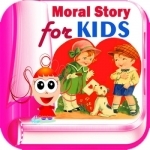
Best Moral Story Books for Kids
Book and Education
App
This Application Helps Kids to learn some good lessons about good habits to follow in life. You can...
Sean Freese (4 KP) rated The Witch (2015) in Movies
Jun 25, 2020
THE VVITCH
The full title is, The Witch: A New England Folktale. Like Grimm’s fairytales, American folklore has taken revisions over the centuries to become a palatable collection of juvenile life lessons. Anyone who has read the original versions of these stories knows how brutal, horrifying, and far removed they are from our current values. As much as I would not condone reading original classic witch tales to a small child, they do contain much deeper implications and ideas than the simple “Don’t tell lies” that are gleaned from modern revisions. What’s fascinating about The Witch is how familiar the setting and story is, without a single cliché or moment of prediction to speak of. The evil that was feared in 17th Century Puritan America has been so eclipsed by the human horrors of The Salem Witch Trials, that we have forgotten what it was to fear a witch.
We know these characters only by their Christian names. William removes his family from their Colonial settlement due to an incompatibility of faith. The colony of Puritans isn’t Christian enough. With his wife, Katherine, William takes his 4 children into the wilds of the Northeast. Airs of The Crucible envelope the setting. Common pronouns are replaced with “thines” and “thous”. Dialogue is delivered as if quoted from Shakespeare or the Bible itself. In the past, this oral dynamic has always sounded ardently rehearsed. Somehow, it’s natural here. Considering William’s rigorous faith, you might expect him to be an overbearingly shrewd father. He is in fact a loving and good man of his time; often a pushover. Katherine is the more fearsome parent, with a shrill voice and gaunt pointed face. While they do live in hardship, this is a good family. Once Fall deadens the colors and greys the skies, things begin to take a disturbing turn.
Ralph Ineson and Kate Dickie play the parents without an exaggeration of the material. Remarkable still are the actors portraying their children. Harvey Scrimshaw plays William’s 10-year-old son, Caleb, as natural as can be imagined. The dramatic beats of a horror movie come with taxing climactic moments and Scrimshaw acts beyond his years. Anya Taylor-Joy plays the eldest daughter Thomasin; a doe-eyed blonde beauty who plays the most relatable character of the flock. The dynamic between Caleb and Thompsin has notes of innocent sexual tension. Their secluded life leaves a great deal of new feelings that can’t be addressed due to their customs. These feelings lead to foreign temptations that are preyed upon by the timeless evil beyond the trees.
The greatest achievement of this film is how faithful it is to its setting and story, while keeping enough behind the veil to become engrossing. The tale feels as old as any, drawing from universal fears and motivations. How it draws you in, keeping you tied to the victims and their perspective while keeping the evil at arm’s length, shows a discipline of craft that greatly compliments the material. Much like vampires, witches have been trivialized and diluted by film into something superficially attractive and entertainingly evil. As with Noseferatu, seeing a witch living a damnable existence of ugliness is much more appropriate. If they’re ever beautiful, they won’t be for long.
The full title is, The Witch: A New England Folktale. Like Grimm’s fairytales, American folklore has taken revisions over the centuries to become a palatable collection of juvenile life lessons. Anyone who has read the original versions of these stories knows how brutal, horrifying, and far removed they are from our current values. As much as I would not condone reading original classic witch tales to a small child, they do contain much deeper implications and ideas than the simple “Don’t tell lies” that are gleaned from modern revisions. What’s fascinating about The Witch is how familiar the setting and story is, without a single cliché or moment of prediction to speak of. The evil that was feared in 17th Century Puritan America has been so eclipsed by the human horrors of The Salem Witch Trials, that we have forgotten what it was to fear a witch.
We know these characters only by their Christian names. William removes his family from their Colonial settlement due to an incompatibility of faith. The colony of Puritans isn’t Christian enough. With his wife, Katherine, William takes his 4 children into the wilds of the Northeast. Airs of The Crucible envelope the setting. Common pronouns are replaced with “thines” and “thous”. Dialogue is delivered as if quoted from Shakespeare or the Bible itself. In the past, this oral dynamic has always sounded ardently rehearsed. Somehow, it’s natural here. Considering William’s rigorous faith, you might expect him to be an overbearingly shrewd father. He is in fact a loving and good man of his time; often a pushover. Katherine is the more fearsome parent, with a shrill voice and gaunt pointed face. While they do live in hardship, this is a good family. Once Fall deadens the colors and greys the skies, things begin to take a disturbing turn.
Ralph Ineson and Kate Dickie play the parents without an exaggeration of the material. Remarkable still are the actors portraying their children. Harvey Scrimshaw plays William’s 10-year-old son, Caleb, as natural as can be imagined. The dramatic beats of a horror movie come with taxing climactic moments and Scrimshaw acts beyond his years. Anya Taylor-Joy plays the eldest daughter Thomasin; a doe-eyed blonde beauty who plays the most relatable character of the flock. The dynamic between Caleb and Thompsin has notes of innocent sexual tension. Their secluded life leaves a great deal of new feelings that can’t be addressed due to their customs. These feelings lead to foreign temptations that are preyed upon by the timeless evil beyond the trees.
The greatest achievement of this film is how faithful it is to its setting and story, while keeping enough behind the veil to become engrossing. The tale feels as old as any, drawing from universal fears and motivations. How it draws you in, keeping you tied to the victims and their perspective while keeping the evil at arm’s length, shows a discipline of craft that greatly compliments the material. Much like vampires, witches have been trivialized and diluted by film into something superficially attractive and entertainingly evil. As with Noseferatu, seeing a witch living a damnable existence of ugliness is much more appropriate. If they’re ever beautiful, they won’t be for long.

100 PICS Quiz
Games and Entertainment
App
The world's greatest picture trivia game ● Over 10,000 pictures to play ● Play over 100 quiz...
This is both a very unique and fairly faithful retelling of the classic Beauty and the Beast fairytale. Hunted takes place in Russia and our main character Yeva (Beauty) is a huntress. She is headstrong, kind, caring, has a bit of a temper and can be vengeful - but overall I quite liked her character.
Like the classic tale, Beauty is the youngest of three sisters and daughter of a merchant. In some versions, she also has three brothers and her sisters are unkind - but that is not the case in this retelling. They live in a nice house until a shipping gamble costs them everything. They are forced to move to their father's old hunting cabin, which is a three-day walk from their current home. Her father used to be a hunter, but his wife believed that it was too dangerous and asked him to stop. Despite that, as a child Beauty was allowed to go hunting with her father and learned to love it. Unfortunately, as she grew her father decided that it was not the way a lady should purport herself and no longer allowed her to hunt.
After the loss of their fortune, Yeva and her family must learn to make due with less. Her father takes up hunting again and goes off to catch game for them to store for the winter. Unfortunately, when he returns he is distraught and swears that the Beast he saw when he was younger is stalking him. When he doesn't return from his second trip, Yeva sets out to find him and this is where the story adopts some significantly different elements from the original tale.
In the original, the father enters a castle and accepts his host's hospitality, but upon leaving takes a single rose for his daughter Beauty and is told he has a choice. He shall either be condemned to death for it or he must stay in the castle. While these are not the events that lead to Yeva's time in the castle, nevertheless she ends up imprisoned there. Over time, she and the Beast grow to know one another - but her treatment isn't as kind overall as the original.
I really enjoyed the tales that Yeva told while she was in captivity because they built the lore of the world and gave us a look into what the characters had grown up listening to. Although Yeva spent most of her time as the castle, I do wish that we were able to get to know the other characters like her sisters a little better. They seem very kind, but relatively one-dimensional. As a result of the Beast's curse, I don't feel like we got to know him as well as we could have. I would have loved to watch him grow and connect with him as Yeva does so that I could feel that </i>yes, they could fall in love.</i> I liked Yeva, but her dog Doe-Eyes was probably my favourite character. The dog was so cheerful and loyal that you couldn't help but love her.
The world that Yeva knows is not one we get to see very often in young adult literature. It is a melding of Russia, with its unique environment and folklore, with a more fantastical world. Yeva tells tales of the Firebird, sees a creature that is half dragon and half woman, and learns to listen to the music of that other world. The world itself reminds me a lot of the Grisha trilogy, although the plots and characters are nothing alike. I would love to experience more of the lore that built this enchanted world in the form of novellas.
I would highly recommend this to young adult/teen readers who enjoy fairytales and retellings, especially ones with a unique take on the tale that includes a lot of culture and lore.
Like the classic tale, Beauty is the youngest of three sisters and daughter of a merchant. In some versions, she also has three brothers and her sisters are unkind - but that is not the case in this retelling. They live in a nice house until a shipping gamble costs them everything. They are forced to move to their father's old hunting cabin, which is a three-day walk from their current home. Her father used to be a hunter, but his wife believed that it was too dangerous and asked him to stop. Despite that, as a child Beauty was allowed to go hunting with her father and learned to love it. Unfortunately, as she grew her father decided that it was not the way a lady should purport herself and no longer allowed her to hunt.
After the loss of their fortune, Yeva and her family must learn to make due with less. Her father takes up hunting again and goes off to catch game for them to store for the winter. Unfortunately, when he returns he is distraught and swears that the Beast he saw when he was younger is stalking him. When he doesn't return from his second trip, Yeva sets out to find him and this is where the story adopts some significantly different elements from the original tale.
In the original, the father enters a castle and accepts his host's hospitality, but upon leaving takes a single rose for his daughter Beauty and is told he has a choice. He shall either be condemned to death for it or he must stay in the castle. While these are not the events that lead to Yeva's time in the castle, nevertheless she ends up imprisoned there. Over time, she and the Beast grow to know one another - but her treatment isn't as kind overall as the original.
I really enjoyed the tales that Yeva told while she was in captivity because they built the lore of the world and gave us a look into what the characters had grown up listening to. Although Yeva spent most of her time as the castle, I do wish that we were able to get to know the other characters like her sisters a little better. They seem very kind, but relatively one-dimensional. As a result of the Beast's curse, I don't feel like we got to know him as well as we could have. I would have loved to watch him grow and connect with him as Yeva does so that I could feel that </i>yes, they could fall in love.</i> I liked Yeva, but her dog Doe-Eyes was probably my favourite character. The dog was so cheerful and loyal that you couldn't help but love her.
The world that Yeva knows is not one we get to see very often in young adult literature. It is a melding of Russia, with its unique environment and folklore, with a more fantastical world. Yeva tells tales of the Firebird, sees a creature that is half dragon and half woman, and learns to listen to the music of that other world. The world itself reminds me a lot of the Grisha trilogy, although the plots and characters are nothing alike. I would love to experience more of the lore that built this enchanted world in the form of novellas.
I would highly recommend this to young adult/teen readers who enjoy fairytales and retellings, especially ones with a unique take on the tale that includes a lot of culture and lore.
